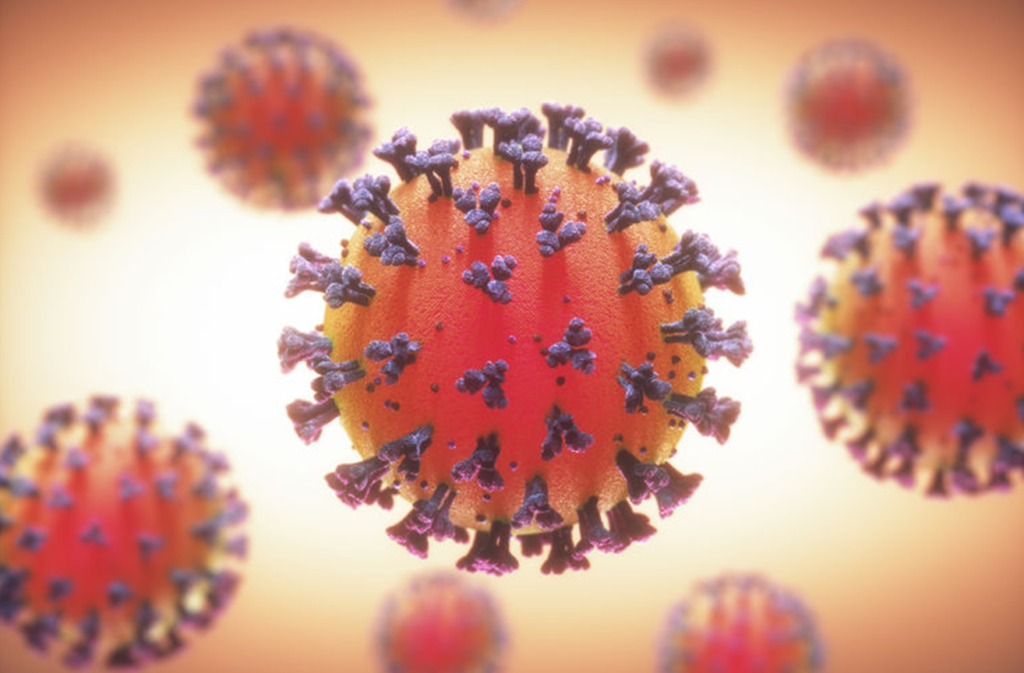The coronavirus pandemic has brought on feelings of uncertainty and anxiety for many, but especially for people with compromised immune systems, such as cancer patients and survivors. As a cancer survivor, I find that the best way to combat these negative feelings is to seek out knowledge and tools to protect myself. Unfortunately, misinformation is spreading nearly as fast as the virus itself, and it is becoming increasingly difficult to weed through piles of questionable information. As a physician, as well as cancer survivor, I hope to be a trustworthy source of coronavirus information for cancer patients, survivors, and their loved ones.
Risk of coronavirus exposure
When experiencing health anxiety, it’s important to keep things in perspective. According to the CDC, the immediate risk of being exposed to coronavirus is still low. People with the highest risk of exposure, whether cancer patients or not, include those who live in coronavirus “hotspots,” work in healthcare, or have had contact with someone who has coronavirus. More specific to cancer patients: if you are still receiving cancer treatment in a medical setting, your risk of exposure increases. For this reason, it’s important to consult with your physician about the risks and benefits of continuing or pausing cancer treatment, if possible.
Risk of serious illness due to coronavirus
Of those who contract coronavirus, certain groups of people are at higher risk for developing severe complications that require intensive care and could lead to death. One preliminary study from China indicated that both current and former cancer treatment recipients face greater risk from coronavirus (Liang et al., 2020). However, the cancer patients and survivors in this study were not stratified by type of cancer or treatment, although experts suspect coronavirus risk strongly depends on type of cancer and status of cancer treatment (Mapes, 2020). In fact, infectious disease expert Dr. Steve Pergam says that blood cancer (i.e., non-Hodgkin lymphoma, leukemia, multiple myeloma) patients and those currently in cancer treatment face the greatest risk due to higher levels of immune suppression.
Extra coronavirus precautions for cancer patients and survivors
I’m sure, by now, you already know to wash your hands for 20+ seconds, avoid touching your face, disinfect surfaces, and stay home as much as possible. However, due to their increased risk of severe illness, cancer patients and survivors should take additional precautions to prevent coronavirus exposure. The CDC has created an extremely useful list of actionsto further reduce exposure for those at highest risk (CDC, 2020). I supplemented the CDC’s list with my own tips below:
- Stock supplies
- Request larger quantities of medications from your doctor, or mail-order medications
- Store enough groceries and other household supplies (especially non-perishables) to last you a while, for flexibility in the case of an outbreak in your area
- Order coronavirus symptom relief supplies (i.e., humidifier, cough syrup, ibuprofen), to use until you’re able to receive medical attention, if you contract coronavirus
- Stay home
- Talk with your doctor about if it would be appropriate to adjust your cancer treatment regimen to reduce coronavirus exposure (e.g., virtual follow-up visits, delaying treatment)
- Have food brought to your home (by friends, family, or a paid service) or use “contactless” grocery shopping – order and pay online, then quickly pick up in store
- Resist the urge to go out by finding ways to entertain yourself and remain social from home – FaceTime or Skype a friend, exercise/do yoga, or bake a delicious meal.
- If you absolutely need to leave home, be especially careful to follow common precautions (e.g., handwashing). Also, try to avoid crowds and go out at less busy times of the day such as the early morning.
- Have a plan in place for if you develop symptoms
- Write down the phone number of your doctor or, if you don’t have a doctor, your local public health department in an easy-to-find place. If you have mild symptoms, call and report your symptoms and medical history. If you have emergency warning signs (e.g., trouble breathing, persistent chest pain/pressure, confusion, or blueness in the lips or face), call 911 immediately.
- Have a facemask or improvised facemask available (like a scarf). After showing symptoms, wear this facemask whenever you’re around other people (e.g., when someone brings you food, going to the doctor or hospital).
- Prepare a list of important information for your caregivers. Include your daily medications, oncologist and primary care doctors’ contact information, and upcoming medical appointments.
About Dr. Diva Nagula
Dr. Diva Nagula is a board-certified osteopathic physician with extensive knowledge and training in Integrative and Functional Medicine. After being diagnosed with Stage 4 non-Hodgkin’s lymphoma, he embarked on his own treatment journey, which saved his life. After several years of treatment, he remains in complete remission. To learn more about his healing approach, check out Dr. Nagula’s new book, “From Doctor to Patient: Healing Cancer Through the Mind, Body, and Spirit.”
References
CDC. (2020, March 17). Get Ready for COVID-19. Retrieved March 27, 2020, from https://www.cdc.gov/coronavirus/2019-ncov/specific-groups/get-ready.html
Liang, W., Guan, W., Chen, R., Wang, W., Li, J., Xu, K., … He, J. (2020). Cancer patients in SARS-CoV-2 infection: a nationwide analysis in China. The Lancet Oncology, 21(3), 335–337. doi: 10.1016/s1470-2045(20)30096-6
Mapes, D. (2020, March 6). Coronavirus: what cancer patients need to know. Retrieved March 27, 2020, from https://www.fredhutch.org/en/news/center-news/2020/03/coronavirus-what-cancer-patients-need-to-know.html

